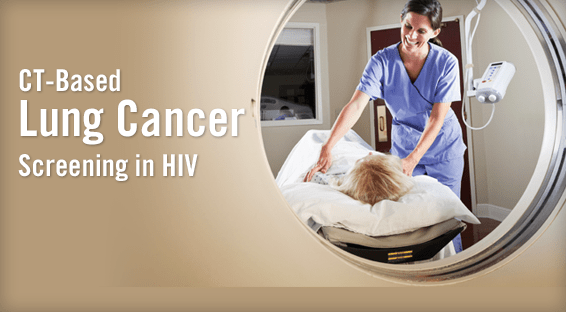Studies have found that patients with HIV have a two- to five-fold greater risk of lung cancer when compared with patients from the general population. Other research has suggested that CT-based lung cancer screening can help decrease lung cancer mortality in heavy smokers. Pairing these findings together has led to speculation that patients with HIV, particularly those who smoke, may be a key target for CT-based lung cancer screening. However, approximately 20% of chest CT scans show abnormalities suggestive of lung cancer. This could lead to invasive tests with downstream complications.
“Because patients with HIV are more likely than the general population to have a history of lung infections or other pulmonary diseases,” explains Keith Sigel, MD, MPH, “they may have more abnormalities on their CT scans. This can increase their risk of false-positive findings on CT-based lung cancer screening.”
New Findings
For a study published in AIDS, Dr. Sigel and colleagues analyzed data on patients with and without HIV who were at risk of lung disease. The study aimed to determine whether or not HIV had an effect on the development of lung disease by comparing the frequency of incidental findings—particularly pulmonary nodules—observed on chest CT scans. “We looked at the number of patients who had positive screens in each group and followed those patients to determine the end result of those findings on the CT scans,” says Dr. Sigel.
Dr. Sigel and colleagues found that, overall, HIV-infected patients did not have significantly more positive scans (29%) than HIV-uninfected patients (24%). However, HIV-infected patients with CD4 counts lower than 200 had significantly higher odds of positive CT scans when compared with patients who were not infected with HIV. “This preliminary evidence shows that lung cancer screening in patients with HIV may have a similar harm-benefit ratio as in patients without the infection,” Dr. Sigel says.
Looking Ahead
To confirm the results of the study, Dr. Sigel and colleagues are conducting a prospective trial of lung cancer screening in HIV-infected patients. “As we evaluate the safety of lung cancer screening, it’s important to consider the results we had when we screened patients with low CD4 counts,” says Dr. Sigel. With smoking rates higher among patients with HIV than the general population, Dr. Sigel also notes that combining smoking cessation efforts with lung cancer screening is an important area of future research and intervention development.




 TimH
TimH